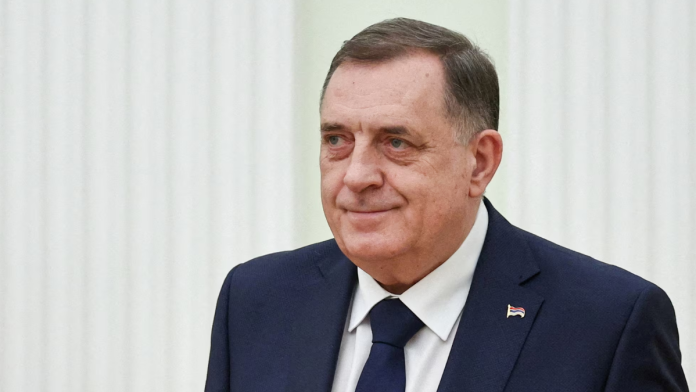The United States has lifted sanctions on Bosnian Serb leader Milorad Dodik and more than 40 of his associates, sparking strong reactions across the Balkans and beyond. The October 30, 2025 decision surprised many, as it follows years of tensions, criticism, and warnings from global leaders. While Dodik’s supporters celebrated the move, it also triggered fresh debate around Bosnia and Herzegovina’s already complex political landscape.
The sanctions were originally imposed for actions viewed as violating the 1995 peace agreement that ended the Bosnian War. They restricted Dodik’s financial dealings and aimed to pressure him to stop activities seen as harmful to peace. After months of lobbying campaigns in the US portraying Dodik as unfairly targeted for his beliefs and values, the sanctions were revoked.
According to the US State Department, the decision came after the National Assembly of Republika Srpska took “constructive actions,” including cancelling laws ruled invalid by Bosnia’s top court. These laws involved property rights, court rulings, election rules, and parts of the criminal code. The Assembly also reversed earlier decisions that Western countries said went against the peace agreement.
How Dodik and His Supporters Reacted
The decision caused celebrations among Dodik’s supporters, who said the sanctions should never have been placed in the first place. Dodik said that the move was a correction of a big injustice. He claimed that the sanctions were based on lies and that the truth had finally come out. He also criticised the international official who watches over Bosnia’s peace agreement, saying that the situation had been handled poorly and now needed fixing.
Other members of his political circle shared the same joy. One prominent political leader from Republika Srpska said she heard the news while on her way to a meeting abroad and called it “good news”.
But the celebrations did not erase Dodik’s long history of legal troubles. He had been punished twice by the US for actions seen as breaking the peace deal that forms the base of how Bosnia and Herzegovina functions as a country.
Earlier in 2025, he was removed from his position in Republika Srpska and was given a one-year prison sentence for refusing to follow the decisions of Bosnia’s top court. The sentence was later reduced to a fine, but he was banned from holding office for six years. Even after this, he remained a strong and influential figure. He often talked about splitting Republika Srpska from Bosnia and also built close ties with Russia.
The Lobbying Efforts Behind the Decision
The lifting of sanctions did not happen suddenly. It came after a long and organised lobbying campaign. Several groups and influential supporters in the US were hired to convince American leaders to lift the sanctions. Reports show that lobbying companies signed paid contracts with the Republika Srpska government. One contract was worth around $1 million per year, with extra payment promised if the sanctions were cancelled.
Well-known political figures and influencers supported Dodik during this campaign. They spoke about him on social media, in interviews, and in speeches. They praised him for standing up for what they described as “traditional values”. Some even visited Republika Srpska and displayed caps with slogans that were similar to popular political messages in the US. They said the sanctions were part of a global attack on leaders like Dodik.
America intervenes in Middle East flashpoint—Israel warned against sanctions as hostage row deepens
Even with all this pressure, the US Office of Foreign Assets Control did not give a detailed explanation about why the sanctions were lifted. This lack of clarity raised questions among journalists, political experts, and lawmakers. Many asked for transparency, especially because the decision involved more than 40 people and several companies linked to Dodik.
Strong Criticism and Rising Concerns
The decision has faced strong criticism. Several US lawmakers called the move irresponsible and premature. A senior member of the Senate’s Foreign Relations Committee argued that Dodik had harmed the peace agreement, strengthened ties with Russia, and benefited from corrupt practices, saying the American public deserved a clear explanation for lifting the sanctions.
Many in Bosnia and abroad worry that the move sends the wrong message — that with enough political backing and lobbying, serious actions can be overlooked. Critics believe removing sanctions without transparent justification could weaken efforts to safeguard peace and accountability in Bosnia.
The situation remains tense, with reactions split between celebration and concern across different regions. For now, the only certainty is that the sanctions against Dodik and his associates have been lifted, triggering heated debate worldwide.


